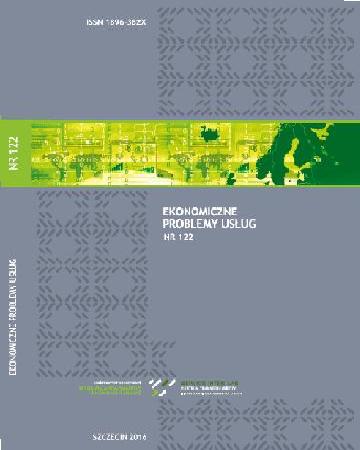
ISSN: 1896-382X
eISSN: 2353-2866
OAI
DOI: 10.18276/epu.2017.126/2-41



Issue archive /
nr 126 (2) 2017
Tendencje rozwojowe narzędzi e-learningowych w szkolnictwie wyższym
(Trends and development ofe-learning tools in higher education)
| Authors: |
Adam
Stecyk
Uniwersytet Szczeciński WydziałZarządzania i Ekonomiki Usług |
| Keywords: | education higher education e-learning ICT |
| Data publikacji całości: | 2017 |
| Page range: | 10 (417-426) |
Abstract
The article presents the civilizational challenges for higher education. It assumes that the development of the information society, demographic changes, globalization and development of information and communications technologies, are the major determinants of changes in society and the economy. In the first part, the article describes general thesis on the development trends of countries and societies, and more detailed changes directly related to higher education. The second part of the article points to the evolution and changes in the ICT market, with particular emphasis on e-learning tools. The main argument of the article assumes that maintaining and expanding a competitive advantage in the market of educational services in higher education, requires monitoring and flexibility in the implementation of both, proven technology and new, innovative educational tools, what leads to increased level of quality, usability and efficiency of distributed knowledge.
Download file
Article file
Bibliography
| 1. | Czernecka, M., Hyla, M., Lais, S., Hoffman, T. (2012). Learnig Problems, E-solutions 2012. |
| 2. | W ars za wa. Pobrano z: http ://xy learningperspectives. pl/files/ted3 4 ieef3 23 4o0/raport-LPES-2012.pdf. |
| 3. | International trends in Higher Education 2015. Oxford University. Pobrano z: https://www.ox.ac.uk/sites/files/oxford/International%20Trends%20in%20Higher%20Ed ucation%202015.pdf. |
| 4. | Jajszczyk, A. (2010). Równe szanse dla uczelni publicznych i niepublicznych w strategii rozwoju szkolnictwa wyższego w Polsce do 2020 roku. W: J. Malec (red.), Perspektywy uczelni niepublicznych w strategiach rozwoju szkolnictwa wyższego (s. 19-27). Kraków: |
| 5. | Krakowska Akademia im. Andrzeja Frycza Modrzewskiego. |
| 6. | Pasternack, P., Bloch, R., Gellert, C., Holscher, M., Kreckel, R., Lewin, D., Lischka, I., Schildberg, A Future Forms and Systems of Study and the Challenges for Teaching and University Management. A study by HoF Wittenberg commissioned by the Austrian Fed¬eral Ministry for Education, Science and Culture, HoF Wittenberg - Institut fur Hochschulforschung an der Martin-Luther-Universitat Halle-Wittenberg. |
| 7. | Stecyk, A (2009). Wykorzystanie technologii ICT w Polsce w świetle badań Światowego Forum |
| 8. | Ekonomicznego. E-mentor, 3 (30). |
| 9. | Strategia rozwoju szkolnictwa wyższego w Polsce do 2020 r. Pobrano z: http://uczelnie2020.pl/. https://open-data.europa.eu/en/data/dataset/cordisref-data. http://www.hwwi.org/publikationen/research-paper.htrnl. |
| 10. | http://www3.wefomm.org. |